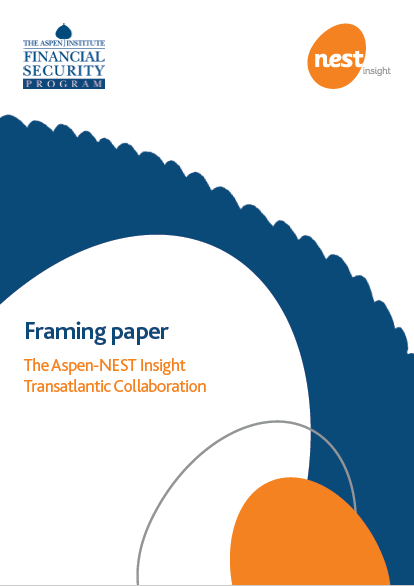The 20th century saw the emergence of the idea of retirement as we have come to know it: defined by more than merely the ‘risk’ of outliving one’s productive working capacity and instead becoming, for many, an aspirational ‘third age’ of life.
Different welfare systems grew up around the world to reflect this new normal, with the United States (US) and the United Kingdom (UK) aligning by the latter part of the century around a ‘liberal’ framework with a prominent role for private saving through the workplace, traditionally through defined benefit (DB) structures.
However, in recent years progress has been threatened as inequality, non-standard forms of employment, and longer lifespans have stretched retirement resources to their limit. In response to these uniquely 21st century pressures, two respected leaders in retirement security are joining forces. The UK’s NEST Insight unit and The Aspen Institute’s Financial Security Program (FSP) in the US are launching a transatlantic collaboration to help solve the next generation of retirement challenges.
In this paper we set out what we believe those challenges to be, and introduce the Aspen-NEST Insight Collaboration. The partnership will seek to enhance understanding of, and provide new insight into, how the retirement system can be improved for the target populations that our organisations share – those on low and moderate incomes. Through research and discussion, it will help policy-makers and the industry to identify and test potential solutions that can form the next phase of innovation in this sector.


